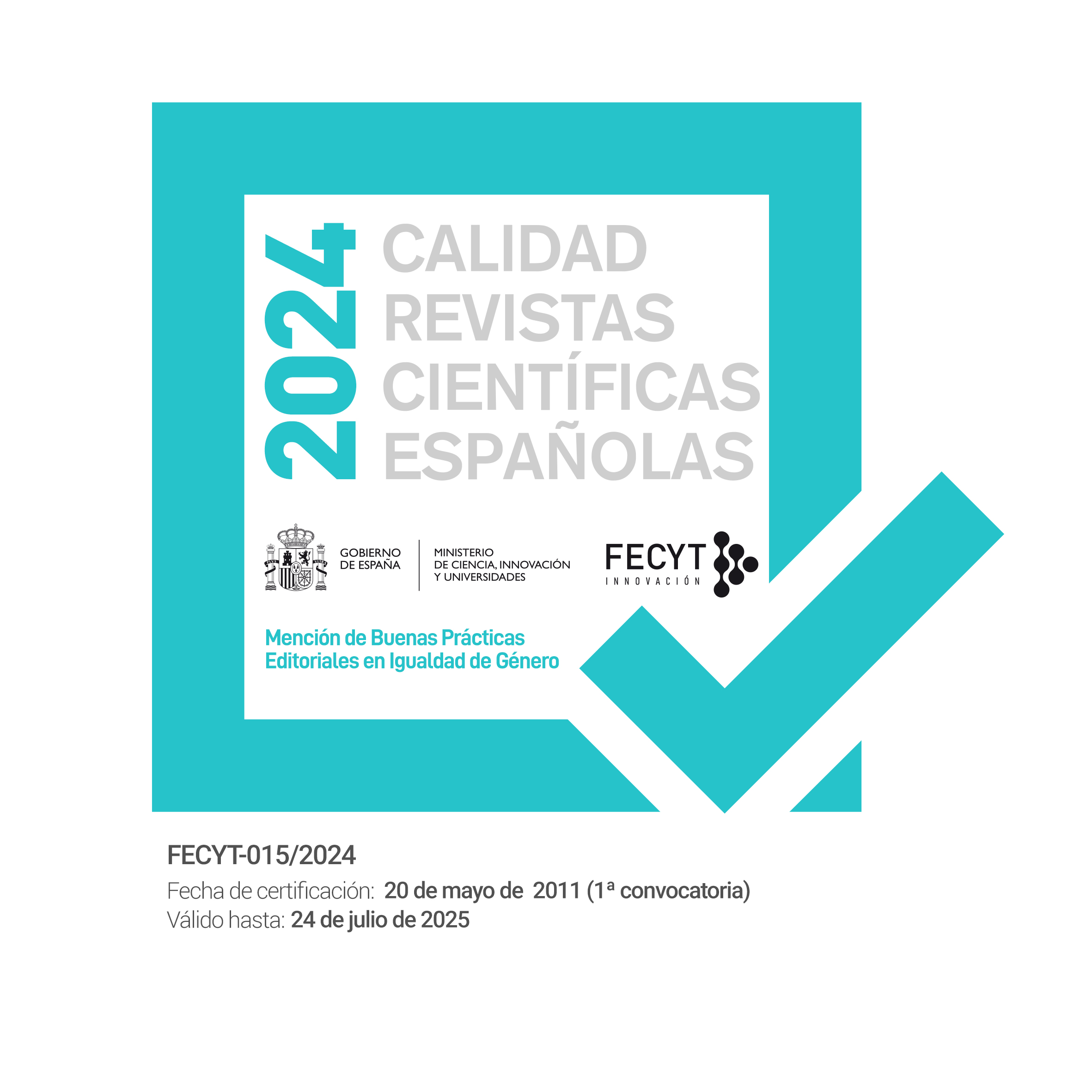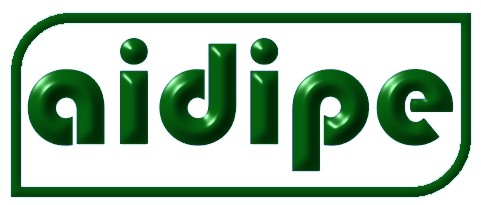在小学教育阶段,学生个人因素对科学课程学业表现的影响
##plugins.pubIds.doi.readerDisplayName##:
https://doi.org/10.30827/relieve.v28i2.24444关键词:
学业表现, 学生态度, 教师态度, 焦虑, 自我效能摘要
该研究的主要目标是分析在小学教育阶段学生的个人因素对科学课程学业表现的影响。该研究为事后回溯研究,以2019国际数学与科学趋势研究报告TIMSS 2019中的数据为研究基础。研究样本由来自535所学校的9512名西班牙小学四年级的学生组成,其中51.6%为男生,48.4%为女生。针对科学课程教学过程学生问卷中的20个项目,我们进行了探索性因素分析和验证性因素分析,得到KMO值为0.93,并确定出了四个影响因素:学生对科学课程的态度、焦虑度、自我效能以及教师的态度。为了预测学生的科学课程表现,我们进行了线性回归分析。分析结果显示学生的态度决定了学生的自我效能,学生的焦虑对学业表现有着负面的影响。家庭的藏书数量作为家庭社会经济水平的指标之一,对学业表现也产生了很大的作用。研究结果表明在小学教育的初期强化学生对科学课程的学习动机很有必要,除此以外,研究也建议鼓励学生使用所学知识解决科学问题,激励学生在科学课程上进行科学实验实操。
##plugins.generic.usageStats.downloads##
参考
Aguilera, D., & Perales-Palacios, F.J. (2020). What effects do didactic interventions have on students’ attitudes towards science? A meta-analysis. Research in Science Education, 50(4), 573-597. https://doi.org/10.1007/s11165-018-9702-2
Alcántara-Manzanares, J., & López-Fernández, J.A. (2021). Introducción y complementos a la formación en didáctica del medioambiente en educación primaria. En Didáctica del medioambiente en educación primaria (pp. 15-40). Síntesis.
Ardasheva, Y., Carbonneau, K. J., Roo, A. K., & Wang, Z. (2018). Relationships among prior learning, anxiety, self-efficacy, and science vocabulary learning of middle school students with varied English language proficiency. Learning and Individual Differences, 61, 21-30. https://doi.org/10.1016/j.lindif.2017.11.008
Ayuso, N., Fillola, E., Masiá, B., Murillo, A.C., Trillo-Lado, R., Baldassarri, S., Cerezo, E., Ruberte, L., Mariscal, M.D., & Villarroya-Gaudó, M. (2021). Gender gap in STEM: A cross-sectional study of primary school students’ self-perception and test anxiety in mathematics. IEEE Transactions on Education, 64(1), 40-49. https://doi.org/10.1109/TE.2020.3004075
Bandura, A. (1997). Self-efficacy in changing societies. Cambridge University Press. https://doi.org/10.1073/pnas.0910967107
Basto, M., & Pereira, J. M. (2012). An SPSS R-menu for ordinal factor analysis. Journal of Statistical Software, 46(4), 1-29. https://doi.org/10.18637/jss.v046.i04
Bidegain, G., & Lukas, J.F. (2020). Exploración de la relación entre actitudes ante las ciencias y el rendimiento en el Programa Internacional para la evaluación de estudiantes (PISA). Revista de Psicodidáctica, 25(1), 1-12. https://doi.org/10.1016/j.psicod.2019.08.003
Burns, E.C., Martin, A.J., Kennett, R.K., Pearson, J., & Munro-Smith, V. (2021). Optimizing science self-efficacy: A multilevel examination of the moderating effects of anxiety on the relationship between self-efficacy and achievement in science. Contemporary Educational Psychology, 64(2), 1-11. https://doi.org/10.1016/j.cedpsych.2020.101937
Centro Europeo para el Desarrollo de la Formación Profesional (CEDEFOP). (2016). Skill shortage and surplus occupations in Europe. European Centre for the Development of Vocational Training. https://doi.org/10.2801/05116
Chmielewski, A.K. (2019). The global increase in the socioeconomic achievement gap, 1964 to 2015. American Sociological Review, 84(3), 517-544. https://doi.org/10.1177/0003122419847165
Claro, S., Paunesku, D., & Dweck, C.S. (2016). Growth mindset tempers the effects of poverty on academic achievement. Proceedings of the National Academy of Sciences, 113(31), 8664-8668. https://doi.org/10.1073/pnas.1608207113
Coleman, J. S., Campbell, E. Q., Hobson, C. J., McPartland, J., Mood, A. M., Weinfeld, F. D., & York, R. L. (1966). Equality of Educational Opportunity. Washington, D. C.: Government Printing Office.
Croak, M. (2018). The effects of STEM education on economic growth. Union College.
De-Juanas, A., Martín, R., & González, M. (2016). Competencias docentes para desarrollar la competencia científica en Educación Primaria. Bordón. Revista de Pedagogía, 68(2), 103-120. https://doi.org/10.13042/Bordon.2016.68207
Denessen, E., Vos, N., Hasselman, F., & Louws, M. (2015). The relationship between primary school teacher and student attitudes towards science and technology. Education Research International, (534690), 1-7. https://doi.org/10.1155/2015/534690
Dietrichson, J., Bøg, M., Filges, T., & Klint, A.M. (2017). Academic interventions for elementary and middle school students with low socioeconomic status: A systematic review and meta-analysis. Review of Educational Research, 87(2), 243-282. https://doi.org/10.3102%2F0034654316687036
Engzell, P. (2021). What do books in the home proxy for? A cautionary tale. Sociological Methods & Research, 50(4), 1487-1514. https://doi.org/10.1177%2F0049124119826143
Fauth, B., Decristan, J., Decker, A., Büttner, G., Hardy, I., Klieme, E., & Kunter, M. (2019). The effects of teacher competence on student outcomes in elementary science education: The mediating role of teaching quality. Teaching and Teacher Education, 86(102882), 1-14. https://doi.org/10.1016/j.tate.2019.102882
Gibbons, R. E., Xu, X., Villafañe, S. M., & Raker, J. R. (2018). Testing a reciprocal causation model between anxiety, enjoyment and academic performance in postsecondary organic chemistry. Educational Psychology, 38(6), 838-856. https://doi.org/10.1080/01443410.2018.1447649
Gil-Flores, J. (2014). Metodologías didácticas empleadas en las clases de ciencias y su contribución a la explicación del rendimiento. Revista de Educación, (366), 180- 214. https://doi.org/10.4438/1988-592X-RE-2014-366-271
Gil-Madrona, P., Martínez-López, M., & Sáez-Sánchez, M.B. (2019). Factores objetivos y subjetivos asociados al rendimiento del alumnado español en ciencias en PISA 2015. Cultura y Educación, 31(4), 671-715. https://doi.org/10.1080/11356405.2019.1656485
González, A., Fernández, M.V., & Paoloni, P.V. (2017). Hope and anxiety in physics class: Exploring their motivational antecedents and influence on metacognition and performance. Journal of Research in Science Teaching, 54(5), 558-585. https://doi.org/10.1002/tea.21377
Grabau, L.G., & Ma, X. (2017). Science engagement and science achievement in the context of science instruction: a multilevel analysis of U.S. students and schools. International Journal of Science Education, 39(8), 1045-1068. https://doi.org/10.1080/09500693.2017.1313468
Guo, J., Marsh, H.W., Parker, P.D., & Dicker, T. (2018). Cross-cultural generalizability of social and dimensional comparison effects on reading, math, and science self-concepts for primary school students using the combined PIRLS and TIMSS data. Learning and Instruction, 58, 210-219. https://doi.org/10.1016/j.learninstruc.2018.07.007
Henschel, S. (2021). Antecedents of science anxiety in elementary school. The Journal of Educational Research, 114(3), 263-277. https://doi.org/10.1080/00220671.2021.1922989
Jansen, M., Scherer, R., & Schroeders, U. (2015). Students' self-concept and self-efficacy in the sciences: Differential relations to antecedents and educational outcomes. Contemporary Educational Psychology, 41, 13-24. https://doi.org/10.1016/j.cedpsych.2014.11.002
López Rupérez, F. (2001). Preparar el futuro. La educación ante los desafíos de la globalización. La Muralla.
López Rupérez, F., García, I., & Expósito, E. (2019). Rendimiento en ciencias, concepciones epistémicas y vocaciones STEM en las comunidades autónomas españolas. Evidencias desde PISA 2015, políticas y prácticas de mejora. Revista Española de Pedagogía, 77(272), 5-27. https://doi.org/10.22550/REP77-1-2019-09
López Rupérez, F., Expósito-Casas, E., & García García, I. (2021). Educación científica y brecha de género en España en alumnos de 15 años. Análisis secundarios de PISA 2015. Revista Complutense de Educación, 32(1), 1-14. https://doi.org/10.5209/rced.66090
Mallow, J., Kastrup, H., Bryant, F. B., Hislop, N., Shefner, R., & Udo, M. (2010). Science anxiety, science attitudes, and gender: Interviews from a binational study. Journal of Science Education and Technology, 19(4), 356-369. https://doi.org/10.1007/s10956- 010-9205-z
Mateos-Núñez, M., Martínez-Borreguero, G., & Naranjo-Correa, F.L. (2020). Comparación de las emociones, actitudes y niveles de autoeficacia ante áreas STEM entre diferentes etapas educativas. European Journal of Education and Psychology, 13(1), 49-64. https://doi.org/10.30552/ejep.v13i1.292
Ministerio de Educación y Formación Profesional. (2022a). Sistema estatal de indicadores de la educación 2021. https://bit.ly/3LC86Kw
Ministerio de Educación y Formación Profesional. (2022b). TIMSS 2019. Estudio Internacional de Tendencias en Matemáticas y Ciencias. Informe Español. https://bit.ly/3lXECvt
Murillo, F. J., & Martínez-Garrido, C. (2020). Correlaciones y análisis de regresión. En F. J. Murillo y C. Martínez-Garrido, Análisis de datos cuantitativos con SPSS en investigación socioeducativa (pp. 83-98). UAM Ediciones.
Organización de las Naciones Unidas para la Educación, la Ciencia y la Cultura (UNESCO). (2019). Descifrar el código: La educación de las niñas y las mujeres en ciencias, tecnología, ingeniería y matemáticas (STEM). https://unesdoc.unesco.org/ark:/48223/pf0000366649
Osborne, J., Simon, S., & Collins, S. (2003). Attitudes towards science: A review of the literature and its implications. International Journal of Science Education, 25(9), 1059-1079. https://doi.org/10.1080/0950069032000032199
Porlán, R. (2018). Didáctica de las ciencias con conciencia. Enseñanza de las ciencias: Revista de Investigación y experiencias didácticas, 36(3), 5-22. https://doi.org/10.5565/rev/ensciencias.2795
Potvin, P., & Hasni, A. (2014). Interest, motivation and attitude towards science and technology at K-12 levels: a systematic review of 12 years of educational research. Studies in Science Education, 50(1), 85-129. https://doi.org/10.1080/03057267.2014.881626
Ros, G., & Rodríguez, M. T. (2021). Influencia del aula invertida en la formación científica inicial de maestros/as: beneficios en el proceso de enseñanza-aprendizaje, actitudes y expectativas hacia las ciencias. Revista de Investigación Educativa, 39(2), 463-482. https://doi.org/10.6018/rie.434131
Savelsbergh, E.R., Prins, G, T., Rietbergen, C., Fechner, S., Vaessen, B.E., Draijer, J.M., & Bakker, A. (2016). Effects of innovative science and mathematics teaching on student attitudes and achievement: A meta-analytic study. Educational Research Review, (19), 158-172. https://doi.org/10.1016/j.edurev.2016.07.003
Senler, B. (2016). Pre-service science teachers' self-efficacy: The role of attitude, anxiety and locus of control. Australian Journal of Education, 60(1), 26-41. https://doi.org/10.1177/0004944116629807
Thibaut, L., Knipprath, H., Dehaene, W., & Depaepe, F. (2018). The influence of teachers’ attitudes and school context on instructional practices in integrated STEM education. Teaching and Teacher Education, 71, 190-205. https://doi.org/10.1016/j.tate.2017.12.014
Toma, R.B., & Meneses, J.A. (2019). Validation of the single-items Spanish-School Science Attitude Survey (S-SSAS) for elementary education. Plos One, 14(1), 1-18. https://doi.org/10.1371/journal.pone.0209027
Udo, M., Ramsey, G.P., & Mallow, J.V. (2004). Science anxiety and gender in students taking general education science courses. Journal of Science Education and Technology, 13(4), 435-446. https://doi.org/10.1007/s10956-004-1465-z
Uitto, A. (2014). Interest, attitudes and self-efficacy beliefs explaining upper-secondary school students´ orientation towards biology-related careers. Interest Journal of Science and Mathematics Education, 12(6), 1425-1444. https://doi.org/10.1007/s10763-014-9516-2
Unfried, A., Faber, M., Stanhope, D.S., & Wiebe, E. (2015). The development and validation of a measure of student attitudes toward Science, Technology, Engineering, and Math (S-STEM). Journal of Psychoeducational Assessment, 33(5), 622-639. https://doi.org/10.1177%2F0734282915571160
Van Aalderen-Smeets, S I., & Van der Molen, J. H. (2015). Improving primary teachers’ attitudes toward science by attitude-focused professional development. Journal of Research in Science Teaching, 52(5), 710–734. https://doi.org/10.1002/tea.21218
Vázquez, A., & Manassero, M.A. (2008). El declive de las actitudes hacia la ciencia de los estudiantes: un indicador inquietante para la educación científica. Revista Eureka sobre Enseñanza y Divulgación de las Ciencias, 5(3), 274-292. http://doi.org/10.25267/Rev_Eureka_ensen_divulg_cienc.2008.v5.i3.03
Wan, Z.H. (2021). Exploring the effects of intrinsic motive, utilitarian motive, and self-efficacy on students’ science learning in the classroom using the expectancy-value theory. Research in Science Education, 51(3), 647-659. https://doi.org/10.1007/s11165-018-9811-y

##submission.downloads##
已出版
##submission.howToCite##
期
栏目
##submission.license##
##submission.copyrightStatement##
##submission.license.cc.by-nc4.footer##Los autores ceden de forma no exclusiva los derechos de explotación de los trabajos publicados a RELIEVE (a los solos efectos de favorecer la difusión de los artículos publicados:firmar contratos de difusión, de integración en bases de datos, etc.) y consienten que se distribuyan bajo la licencia de Creative Commons Reconocimiento-Uso No Comercial 4.0 International (CC-BY-NC 4.0), que permite a terceros el uso de lo publicado siempre que se mencione la autoría de la obra y la fuente de publicación, y se haga uso sin fines comerciales.
Los autores pueden llegar a otros acuerdos contractuales adicionales e independientes, para la distribución no exclusiva de la versión del trabajo publicado en esta revista (por ejemplo, incluyéndolo en un repositorio institucional o publicándolo en un libro), siempre y cuando se cite claramente que la fuente original de publicación es esta revista.
La mera remisión del artículo a RELIEVE supone la aceptación de estas condiciones.

















